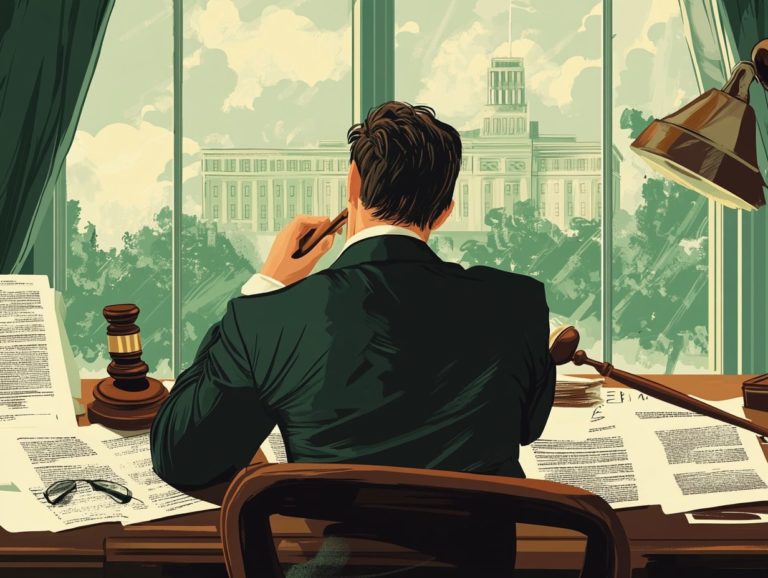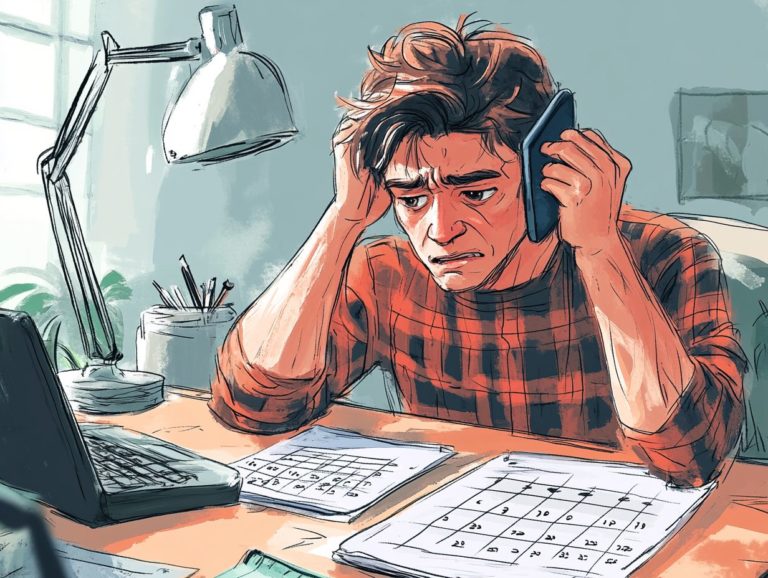What Should You Do If You Can’t Afford a Lawyer?
Navigating the legal system can feel overwhelming, particularly when finances are tight.
Fortunately, there are options at your fingertips if you can t afford a lawyer. This article delves into essential topics such as legal aid, eligibility requirements, and pro bono legal services.
You will find valuable resources for free legal advice that can empower you to take your next steps with confidence.
Remember, you don t have to face your legal challenges alone!
Contents
- Key Takeaways:
- Understanding Legal Aid
- Pro Bono Legal Services
- Alternative Options for Legal Representation
- Resources for Free Legal Advice
- Frequently Asked Questions
- What Should You Do If You Can’t Afford a Lawyer?
- Can I get a public defender if I can’t afford a lawyer?
- What is pro bono legal service and how can I access it?
- Is there a limit to how much a lawyer can charge me?
- What if I don’t qualify for free legal aid but still cannot afford a lawyer?
- Can I represent myself in court if I can’t afford a lawyer?
Key Takeaways:

Consider seeking legal aid, which provides free or low-cost legal services to those who qualify based on income and other criteria.
Explore pro bono legal services, which are free legal services provided by volunteer lawyers to assist individuals in need.
If you are unable to afford a lawyer, consider alternative options such as self-representation, mediation, or utilizing resources for free legal advice.
Understanding Legal Aid
Understanding legal aid is vital for anyone seeking support in civil cases non-criminal legal matters especially when confronting issues like domestic violence, housing challenges, or navigating the complexities of government benefits.
Legal aid includes free or low-cost legal services for those who qualify, particularly individuals from low-income backgrounds.
In the United States, organizations such as the Legal Services Corporation and various local legal aid societies strive to ensure that everyone has access to essential legal representation, regardless of their financial means. This assistance is crucial for fostering access to justice and safeguarding legal rights.
What is Legal Aid?
Legal aid is a service designed to offer free or low-cost legal assistance to individuals who cannot afford attorney fees, focusing primarily on civil cases.
It covers a wide array of legal matters, such as family law, where it can assist you in navigating custody disputes or addressing domestic violence situations, and housing issues, helping tenants confront eviction or seek fair housing options.
Unlike public defenders, who are appointed to handle criminal cases and often manage overwhelming caseloads, legal aid organizations specialize in civil legal matters, ensuring equitable access to justice.
For example, if you are a single parent, you might visit a local legal aid clinic for guidance on modifying child support. Meanwhile, a nonprofit organization may provide legal representation for low-income families facing housing discrimination.
Organizations like the Legal Services Corporation work tirelessly to ensure these vital resources are readily accessible to those who need them most.
Eligibility Requirements
Eligibility requirements for accessing legal aid services generally hinge on income thresholds that fluctuate by state and organization, ensuring support reaches low-income families like yours.
In North Carolina, for instance, legal aid organizations evaluate both your income and household size to determine if you qualify for assistance. Other states might use different metrics, so it is essential to familiarize yourself with the specific criteria that apply in your area.
Legal aid societies meticulously assess these eligibility standards based on guidelines set by the American Bar Association, which strives to uphold consistency and fairness across the nation. By following these principles, they ensure that vital legal support is available to those who truly need it, helping to bridge the access to justice gap for marginalized communities.
Pro Bono Legal Services
Pro bono legal services play a vital role in the legal system by offering free legal representation to individuals who cannot afford assistance, especially in civil cases. These invaluable services arise from the dedication of volunteer attorneys who generously donate their time and expertise to support those in need, ensuring that even the most vulnerable populations can access justice.
The American Bar Association actively encourages lawyers to participate in pro bono work, viewing it as a professional responsibility that enriches the entire legal landscape.
Act now to secure the help you need!
What are Pro Bono Services?
Do you find yourself needing legal help but worried about costs? Pro bono services might be your answer!
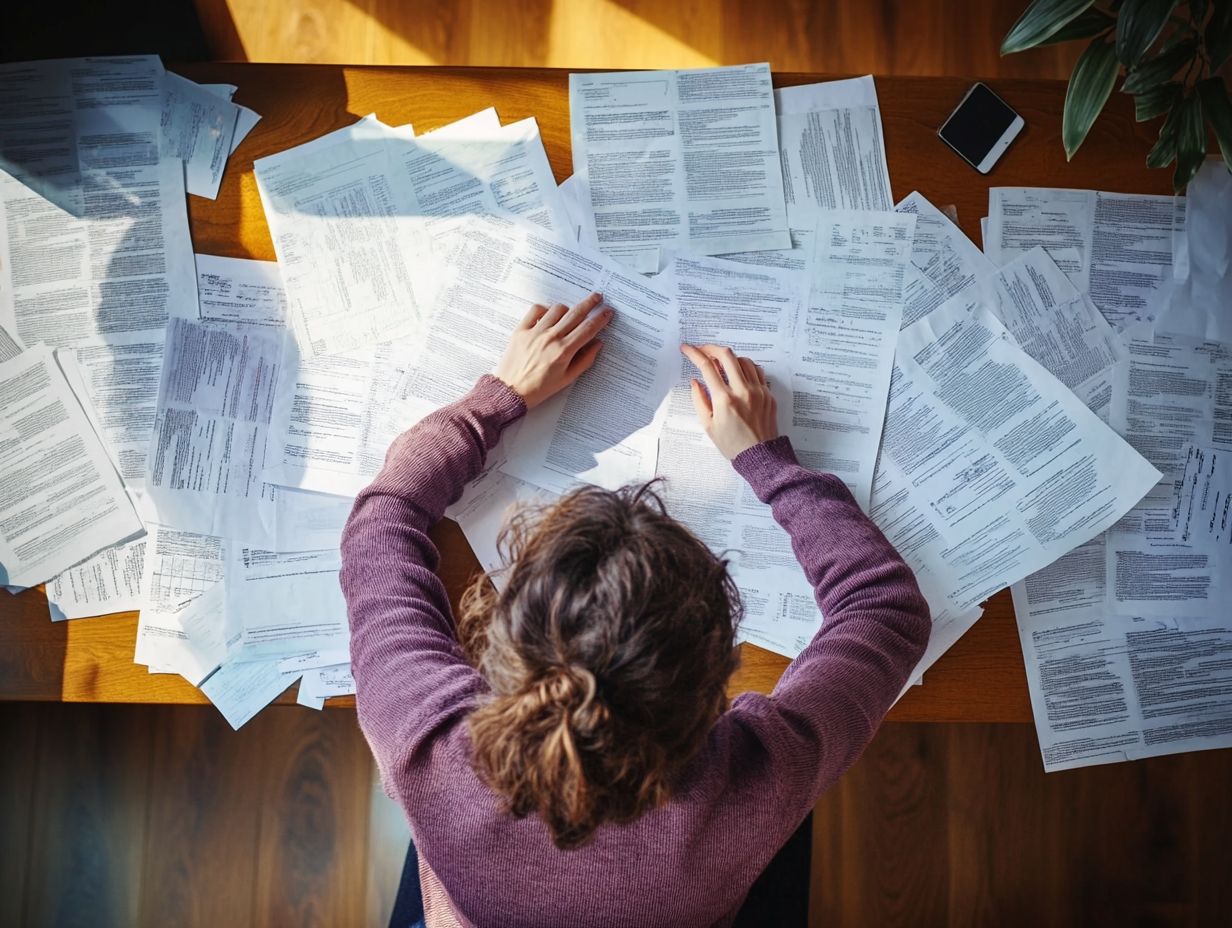
Pro bono services refer to the voluntary legal assistance provided by attorneys at no cost, designed to ensure that individuals facing civil cases have access to justice, even when they cannot afford representation.
This concept is essential for bridging the gap for low-income individuals and marginalized communities who encounter legal challenges without the means to secure legal counsel.
When you qualify for these services, several factors come into play, including your income level, community status, and the specific legal issue you re facing be it housing disputes, family law matters, or employment concerns.
Legal aid organizations play a crucial role in coordinating these services, linking eligible clients with willing attorneys.
This creates a ripple effect of positive change within communities.
The influence of pro bono work goes beyond individual cases; it nurtures a more equitable society where everyone s voice is heard and legal rights are respected.
How to Find Pro Bono Lawyers
Don’t wait! Finding pro bono lawyers can be your first step towards achieving justice.
One effective avenue is reaching out to local legal aid societies, which often maintain directories of attorneys eager to provide free or reduced-cost services.
Engaging with legal clinics is another beneficial option, as they frequently organize events aimed at educating and assisting the community with legal matters.
The American Bar Association’s website is a treasure trove of information regarding pro bono resources, including programs tailored to your state.
To ensure you find the right match, it’s wise to prepare a list of specific legal concerns. This will guide your discussions with potential attorneys and help clarify the type of support you truly need.
Alternative Options for Legal Representation
When traditional legal representation isn t within reach, you have several alternative options at your disposal, such as self-representation or mediation and arbitration to effectively address your legal matters.
Self-representation gives you the power to take charge of your legal journey, though it demands a solid grasp of legal documents, procedures, and pertinent laws.
Mediation is when a neutral person helps disagreeing parties find a solution, while arbitration is when a third party makes a binding decision.
On the other hand, mediation and arbitration present structured avenues for conflict resolution that can be less formal and more cost-effective than conventional court processes, often engaging legal professionals skilled in these methods.
Self-Representation
Self-representation, often known as self-representation, gives you the power to handle your own legal matters. This option can be a game-changer in civil cases where attorney fees might be a considerable burden.
To navigate the self-representation process effectively, you’ll need to prepare diligently and grasp the legal procedures clearly.
Start by researching the relevant laws and gathering essential legal documents, such as petitions, motions, and evidence that will strengthen your case.
It’s vital to become acquainted with court protocols, timelines, and submission requirements.
While representing yourself can indeed save on costs, seeking legal advice is highly advisable to help you navigate the intricate legal terms and procedures effectively.
Utilize legal resources such as online guides, local legal aid organizations, and court self-help centers to access valuable assistance and information.
Consulting professionals for preliminary advice can also ensure that you fully understand your rights and obligations within the judicial system.
Mediation and Arbitration
Mediation and arbitration serve as advanced ways to solve disputes outside of court, offering you avenues to address legal issues while often yielding more amicable outcomes.
In mediation, the focus is on fostering open communication and collaboration between you and the other party, guiding you toward an agreement that both parties can agree on. On the other hand, arbitration engages a neutral third party who listens to both sides and renders a final decision.
Each process caters to different scenarios. Mediation often shines in family disputes or business negotiations where maintaining an ongoing relationship is paramount, while arbitration is typically favored for commercial disputes or situations that demand a clear, definitive ruling.
Legal professionals help you understand these processes, providing you with insights into the distinct advantages and disadvantages of each, thereby significantly enhancing your chances of achieving a satisfactory resolution.
Resources for Free Legal Advice
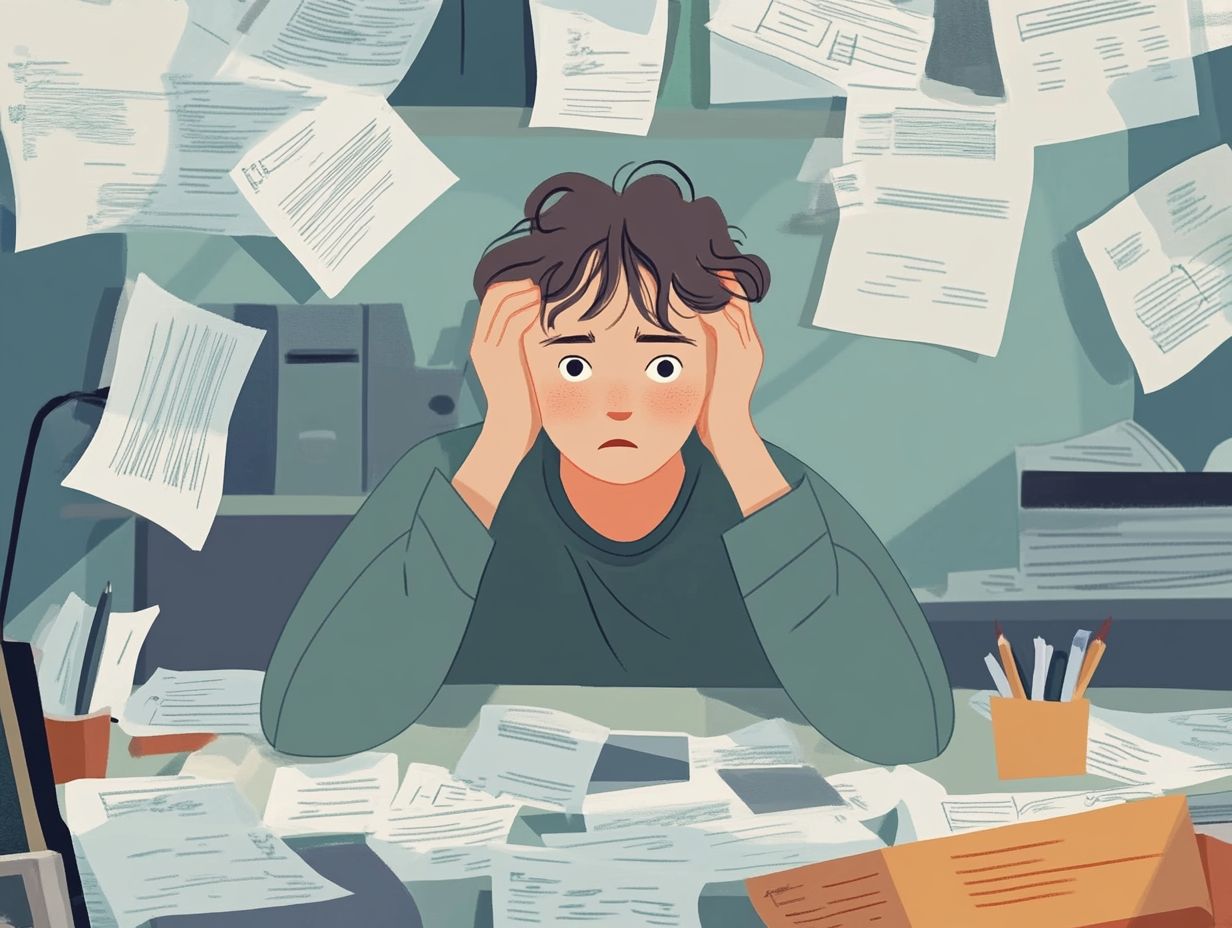
Accessing free legal advice is vital for anyone navigating legal challenges, and a wealth of resources awaits you.
From legal clinics to hotlines and online platforms, you ll find valuable information and assistance at your fingertips.
Legal Clinics and Hotlines
Legal clinics and hotlines act as essential gateways for individuals seeking free legal advice and assistance, connecting you with qualified attorneys and resources tailored to your unique needs.
These organizations often rely on free services and community support, ensuring a wide array of legal issues is effectively addressed. You can often find assistance in areas such as:
- Family law
- Housing disputes
- Immigration matters
- Criminal justice
Hotlines serve a critical function by providing immediate legal advice and guidance, allowing you to quickly tackle urgent legal questions. Such resources are invaluable for those who might not have the means to afford legal representation, empowering you to navigate your complex legal landscape with greater confidence.
Online Legal Resources
Explore the amazing world of online legal resources! They are becoming increasingly vital for individuals seeking legal advice, offering a diverse range of information, templates, and support for various legal matters.
These resources are particularly beneficial for those who may not have the time or resources to consult a traditional attorney. With platforms like LegalZoom and Rocket Lawyer at your fingertips, you can effortlessly access customizable document templates for wills, contracts, and other legal needs all without the intimidating prospect of hefty legal fees.
Organizations such as Nolo and the American Bar Association provide a wealth of educational materials designed to empower you in understanding your legal rights and responsibilities more thoroughly.
Online consultations have also surged in popularity, providing you with flexible and convenient access to knowledgeable professionals who can address your specific questions and offer tailored guidance. This ensures that you can navigate your legal journey with confidence and clarity.
Frequently Asked Questions
What Should You Do If You Can’t Afford a Lawyer?
If you can’t afford a lawyer, here are some options:
- Seek out pro bono legal services in your community
- Apply for free legal aid through a non-profit organization
- Represent yourself in court, also known as pro se representation
- Negotiate a payment plan with a lawyer for their services
Can I get a public defender if I can’t afford a lawyer?
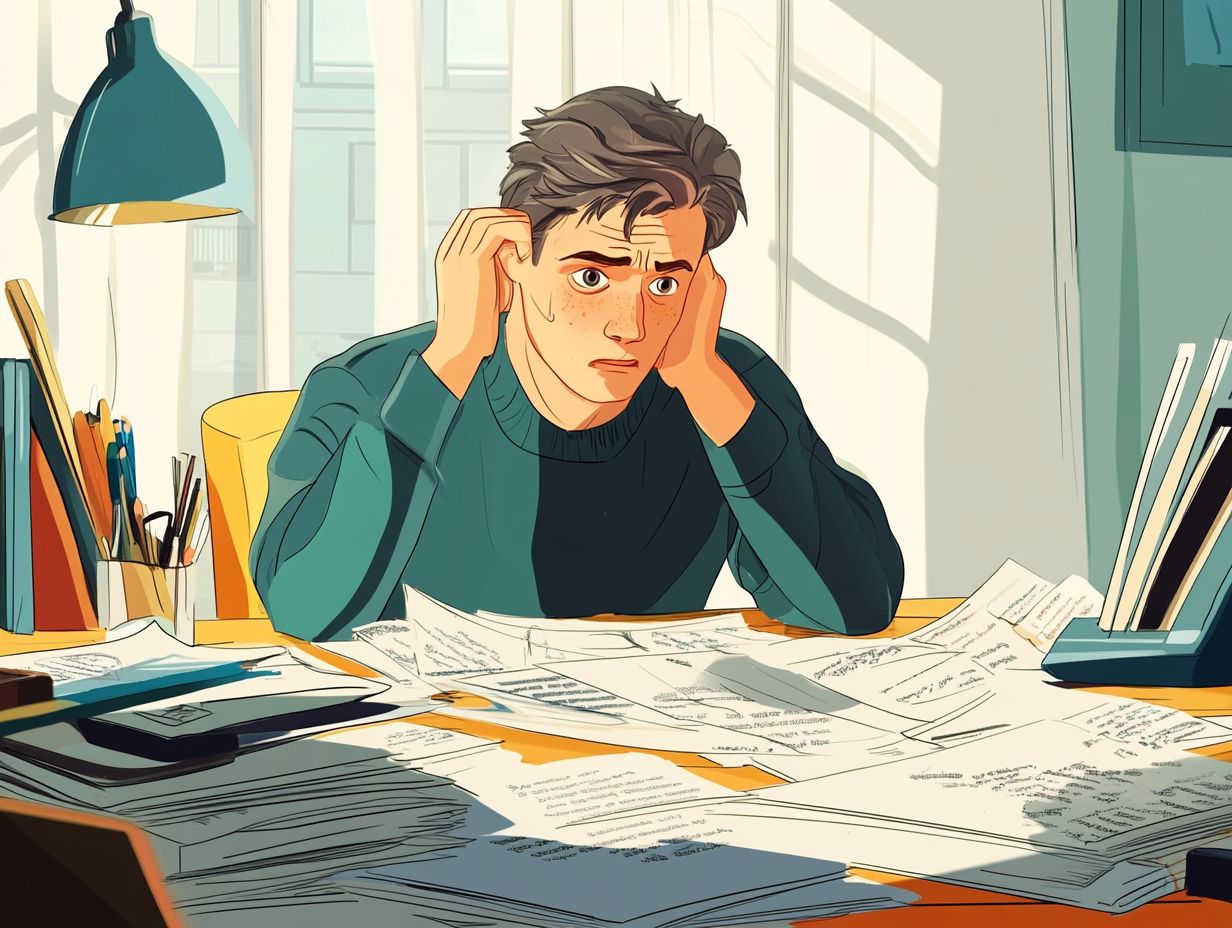
Yes, if you are facing criminal charges and cannot afford a lawyer, you have the right to a public defender. Public defenders are lawyers assigned by the court to represent individuals who cannot afford to hire a private attorney.
What is pro bono legal service and how can I access it?
Pro bono legal service refers to free legal services provided by lawyers to individuals who cannot afford to pay for legal representation. You can access pro bono legal services through legal aid organizations, bar associations, and other non-profit organizations.
Is there a limit to how much a lawyer can charge me?
Yes, there are limits to how much a lawyer can charge for their services. These limits vary by state and type of case.
Lawyers must charge fair fees. If you believe you have been overcharged, file a complaint with your state’s bar association.
What if I don’t qualify for free legal aid but still cannot afford a lawyer?
If you don’t qualify for free legal aid, try talking about a payment plan with a lawyer. Many are willing to work out flexible payment options for clients in need.
Discuss your financial situation openly to reach an agreement that works for both you and the lawyer.
Can I represent myself in court if I can’t afford a lawyer?
Yes, you can represent yourself in court, which is called representing yourself. However, consider the complexity of your case and the risks of not having legal support.
Your rights matter! Seek legal advice whenever possible to help navigate your situation.

